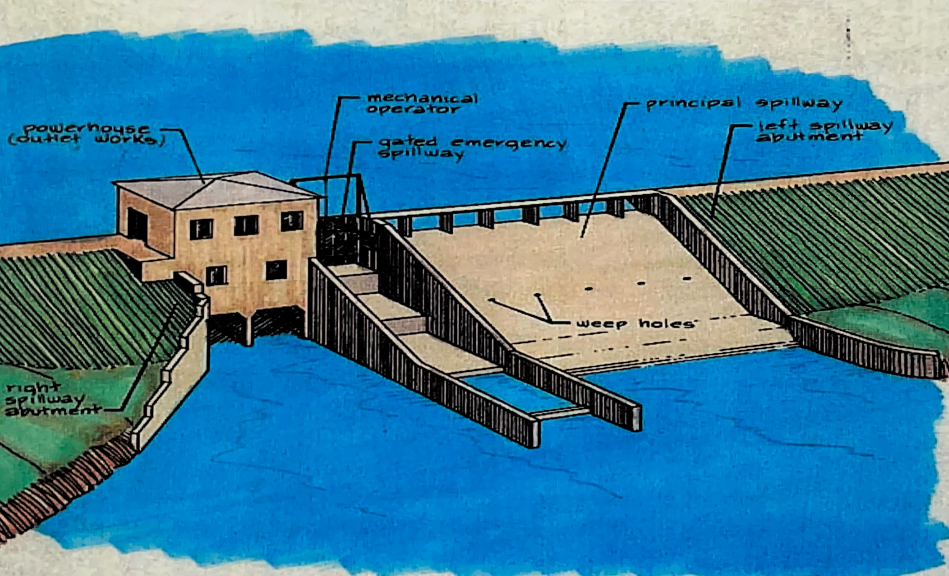In February 2023, the Federal Emergency Management Agency (FEMA) Emergency Management Institute (EMI) hosted a Virtual Tabletop Exercise (VTTX) at the Prince George’s County Office of Homeland Security and Emergency Management (PGOHSEM). The exercise brought together governmental and nongovernmental partners to partake in a hypothetical dam failure at the Ashcroft Drive Dam. Staff from the Maryland-National Capital Region Emergency Response System (MDERS), in collaboration with exercise participants, provided evaluation support to assess the strengths, weaknesses, and areas for improvement exhibited during the exercise. This feedback will help improve and prepare participating agencies for a multifaceted response to a potential dam failure.
Exercise participants from state and local governmental offices collaborated with nongovernmental organizations (NGOs) to simulate response efforts to a large-scale flood. Agencies involved in the exercise specialized in community relations, public communication, environmental protection, homeland security, law enforcement, fire/rescue/EMS, healthcare, family services, social services, public works, and dam safety.

The exercise scenario simulated a dam failure that caused significant flooding in the community and risks to public safety. The inundation of roadways, property damage, unsecured utilities, hazardous material concerns, and displacement of residents presented short and long-term effects that required multiple response activities.
Throughout the exercise, participants were arranged into three groups to review key events and issues occurring during the notification, response, and recovery stage. Each module began with an update to provide exercise participants with situational awareness of the overall damages and safety hazards occurring at different time periods. Once briefed, exercise participants discussed roles, resource requirements, communication methods, mutual aid, and information-sharing needs. Group discussions allowed exercise participants to test their knowledge of available capabilities beneficial to conduct emergency response and recovery operations.
During each new phase of the response, exercise participants analyzed the area and population affected to identify pertinent agencies that should be involved in planning the response and recovery steps. All groups agreed to establish a joint information system (JIS) to streamline information sharing and ensure efficient communication among responding agencies. A public information officer (PIO) was assigned to maintain accuracy in disseminating essential messages to guide response partners and answer questions from the media to share with the public. Participating agencies prioritized activating mutual aid and other interjurisdictional agreements to facilitate evacuation, rescue operations, and mass care to victims. After the initial response, exercise participants collectively identified the secondary measures needed to initiate road repairs, restore local waterways, reconstruction of public/private property, and removal of debris. Lastly, during the recovery phase, participants established emergency shelters with the support of social services to aid displaced families and alleviate food, water, and safety insecurities.
At the conclusion of the exercise, MDERS staff help conducted an evaluation to find if the VTTX allowed participants to understand when to execute emergency response plans, policies, and procedures. MDERS staff and participants identified operational barriers, delegation of tasks, communication hurdles, and integration of Incident Command System (ICS) principles as areas to improve response efforts. By identifying these areas for improvement, participant agencies can learn and prepare for large-scale flooding resulting from a dam failure.
For more information regarding this exercise, please contact mders.training@maryland.gov.




